How To Play Spread Triads On Guitar
by Simon Candy
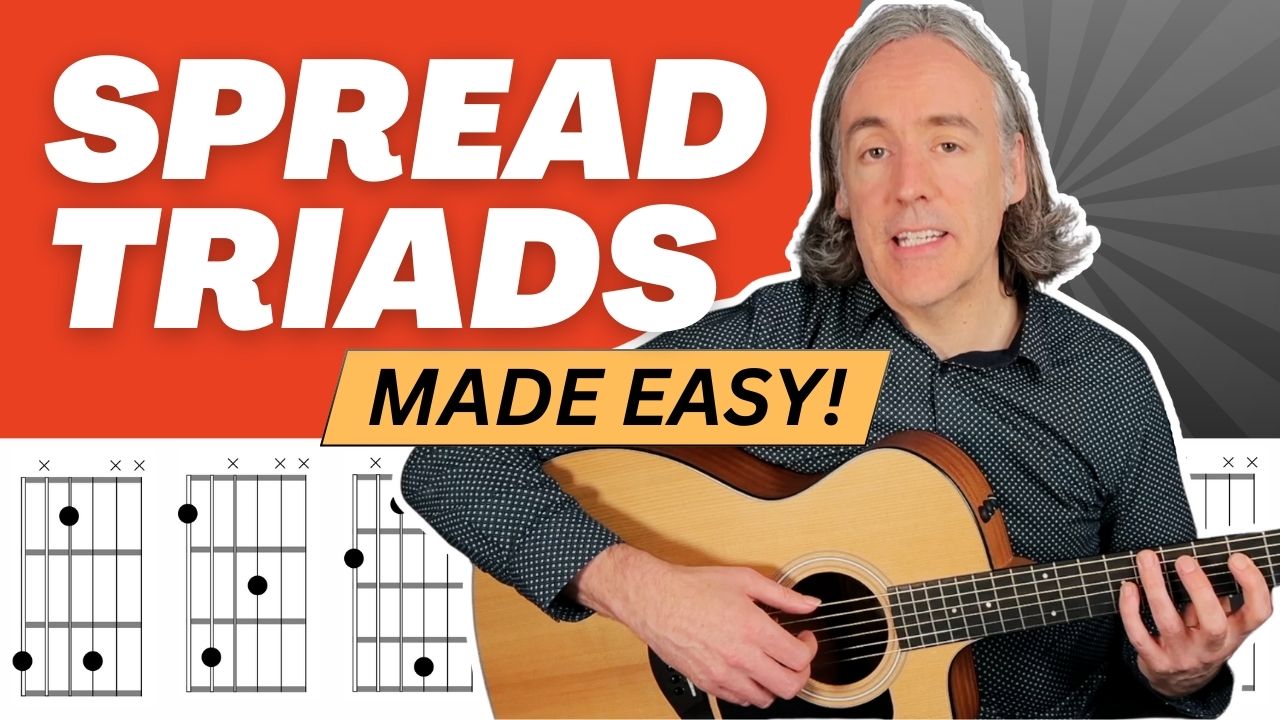 In this video, you learn how to play spread triads on guitar that will elevate your rhythm playing, unlocking beautiful, full-sounding chord shapes!
In this video, you learn how to play spread triads on guitar that will elevate your rhythm playing, unlocking beautiful, full-sounding chord shapes!
I’ll break down spread triads step-by-step, showing you how to take basic triads and spread them out across the fretboard for a smoother, more professional sound.
These beautiful chord shapes can be used in a wide range of musical styles, from pop and rock to jazz, blues and classical. You learn:
• What spread triads are, and how you can create them yourself across the fretboard
• The best ways to play spread triads on guitar
• How to use spread triads in your playing to make your chord progressions sound better
Watch the video below to learn more:
Major Spread Triads
• 6th String
The following are the root, 1st and 2nd inversion major spread triad shapes stemming from the 6th string (watch the video above for a detailed breakdown)
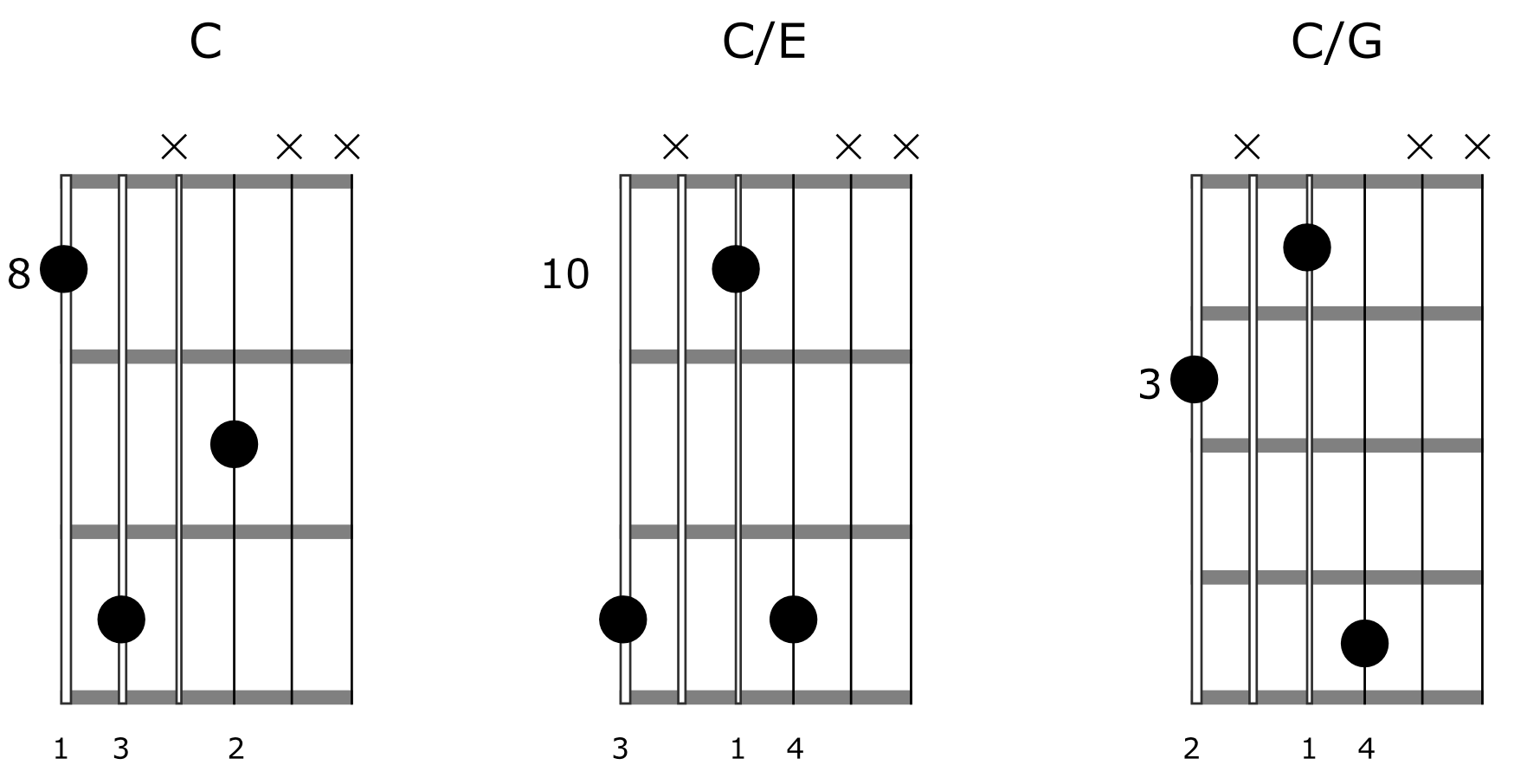
• 5th String
The following are the root, 1st and 2nd inversion major spread triad shapes stemming from the 5th string (watch the video above for a detailed breakdown)
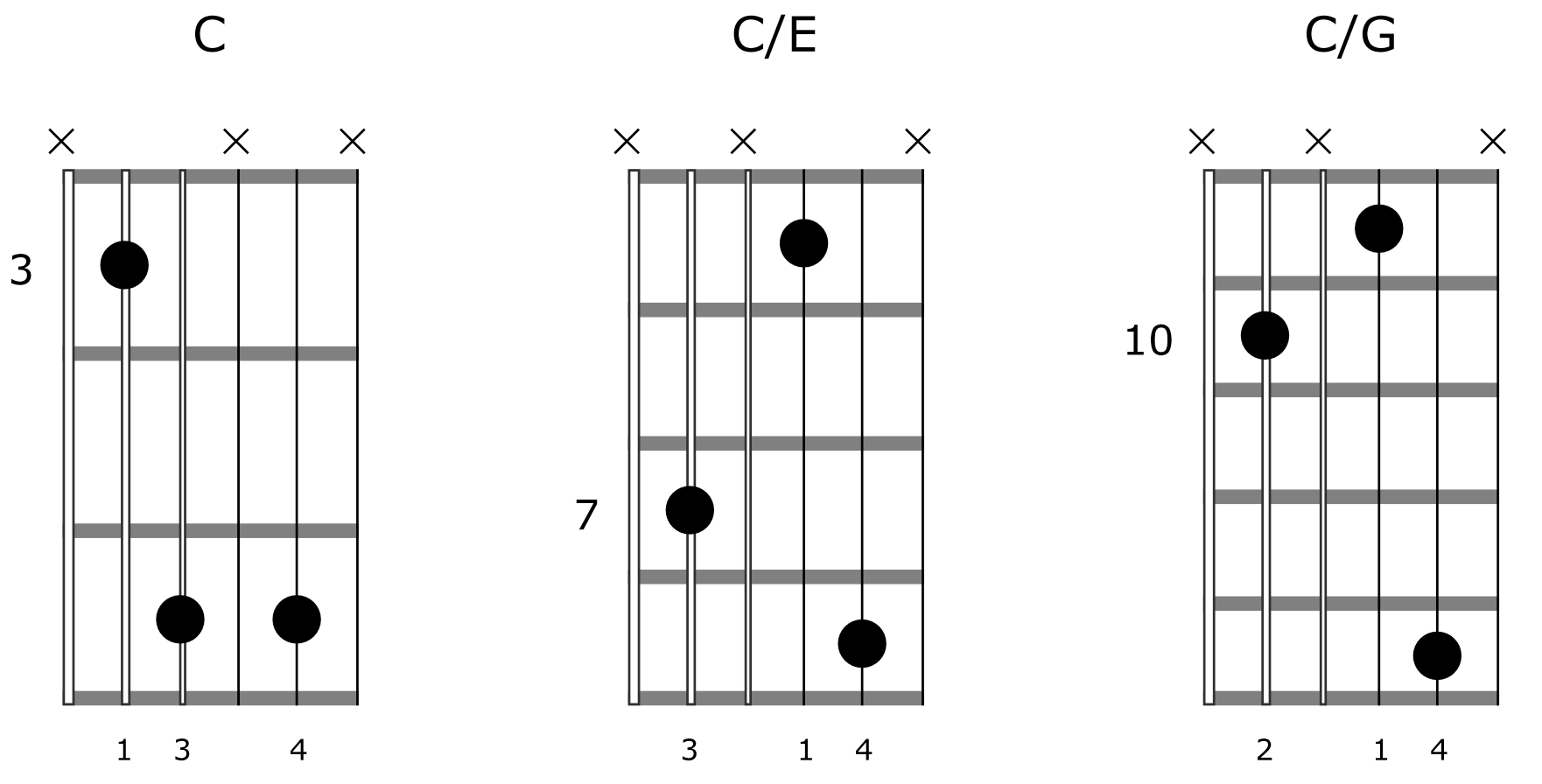
• 4th String
The following are the root, 1st and 2nd inversion major spread triad shapes stemming from the 4th string (watch the video above for a detailed breakdown)
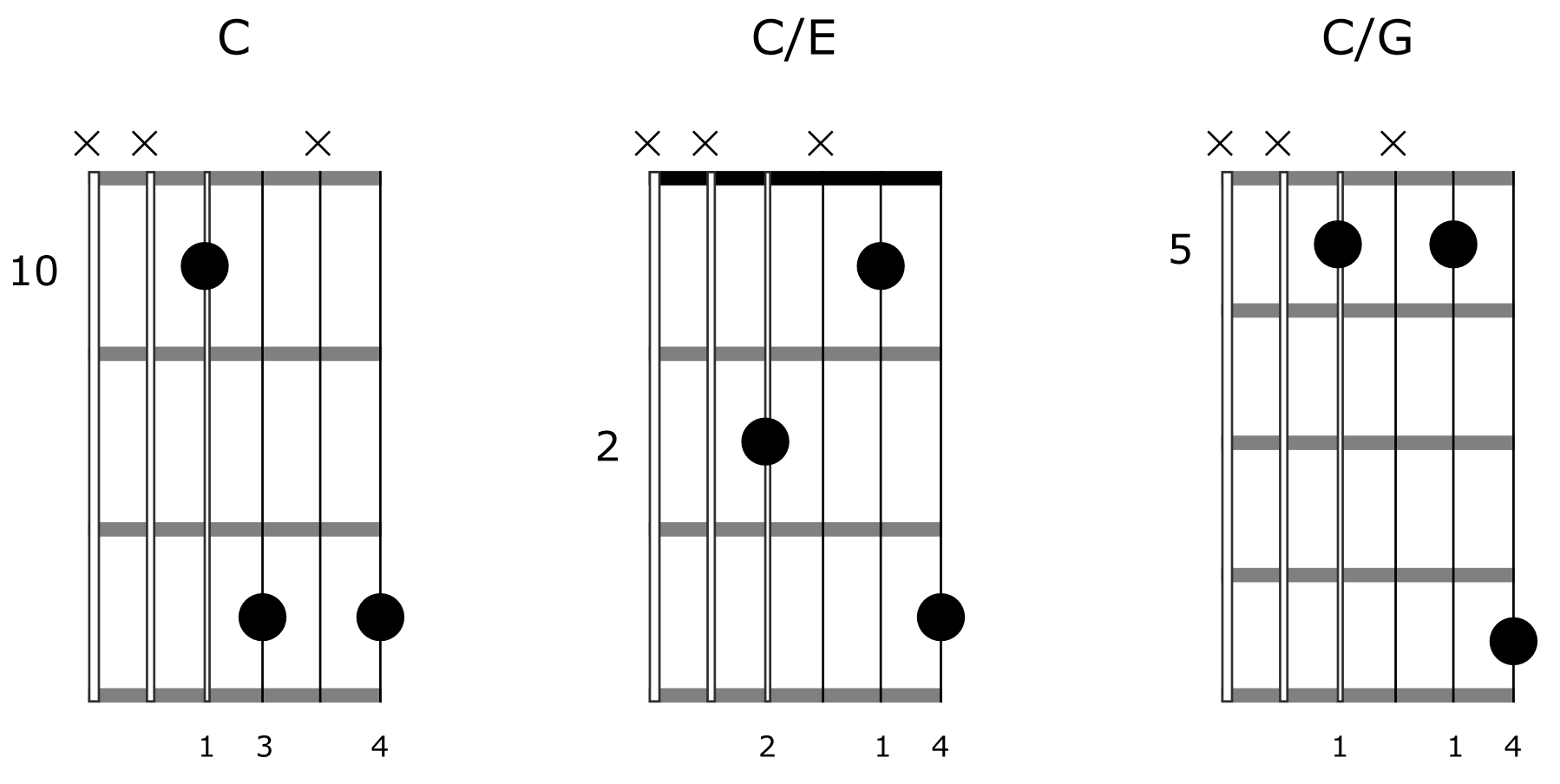
Minor Spread Triads
• 6th String
The following are the root, 1st and 2nd inversion minor spread triad shapes stemming from the 6th string (watch the video above for a detailed breakdown)
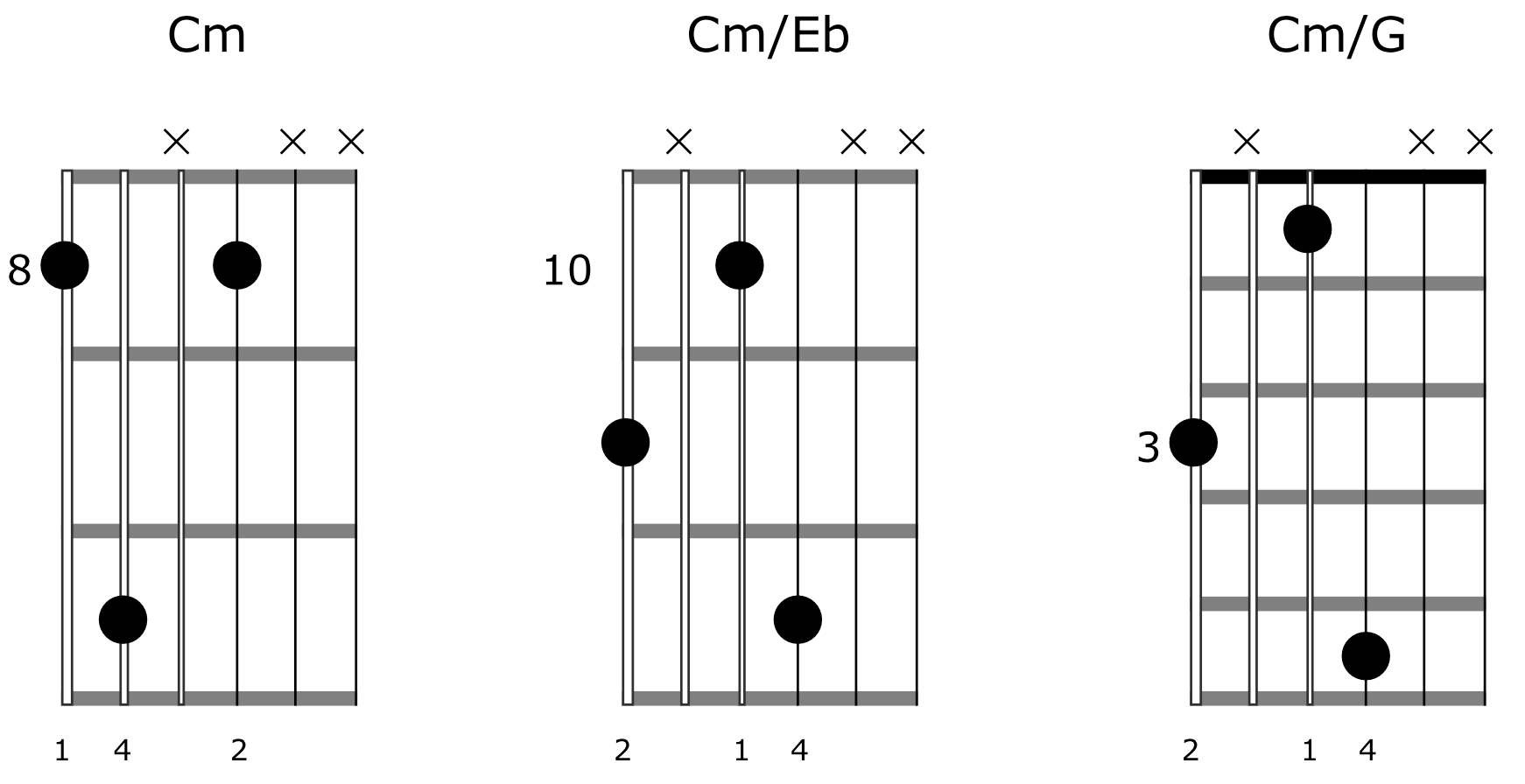
• 5th String
The following are the root, 1st and 2nd inversion minor spread triad shapes stemming from the 5th string (watch the video above for a detailed breakdown)
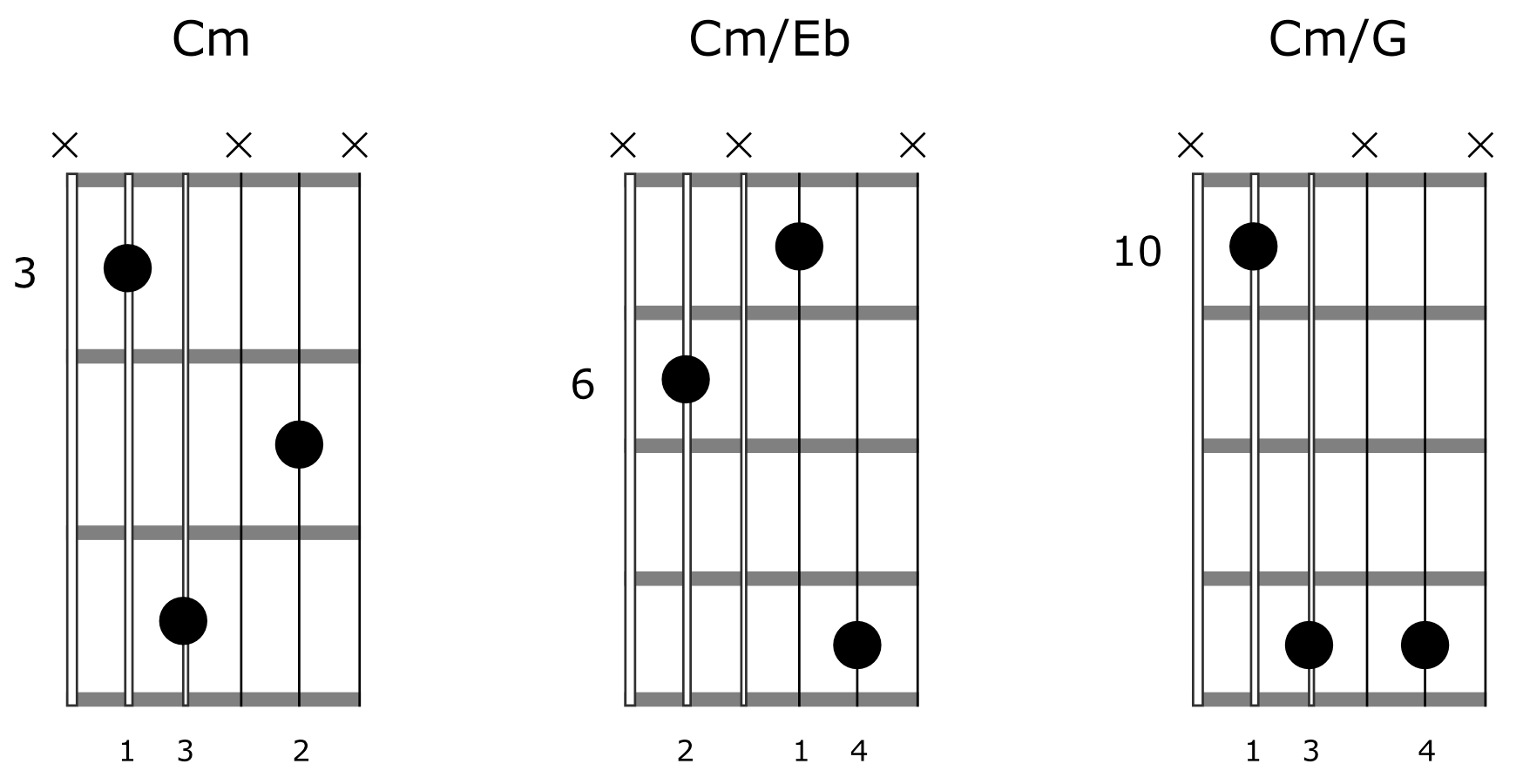
• 4th String
The following are the root, 1st and 2nd inversion minor spread triad shapes stemming from the 4th string (watch the video above for a detailed breakdown)
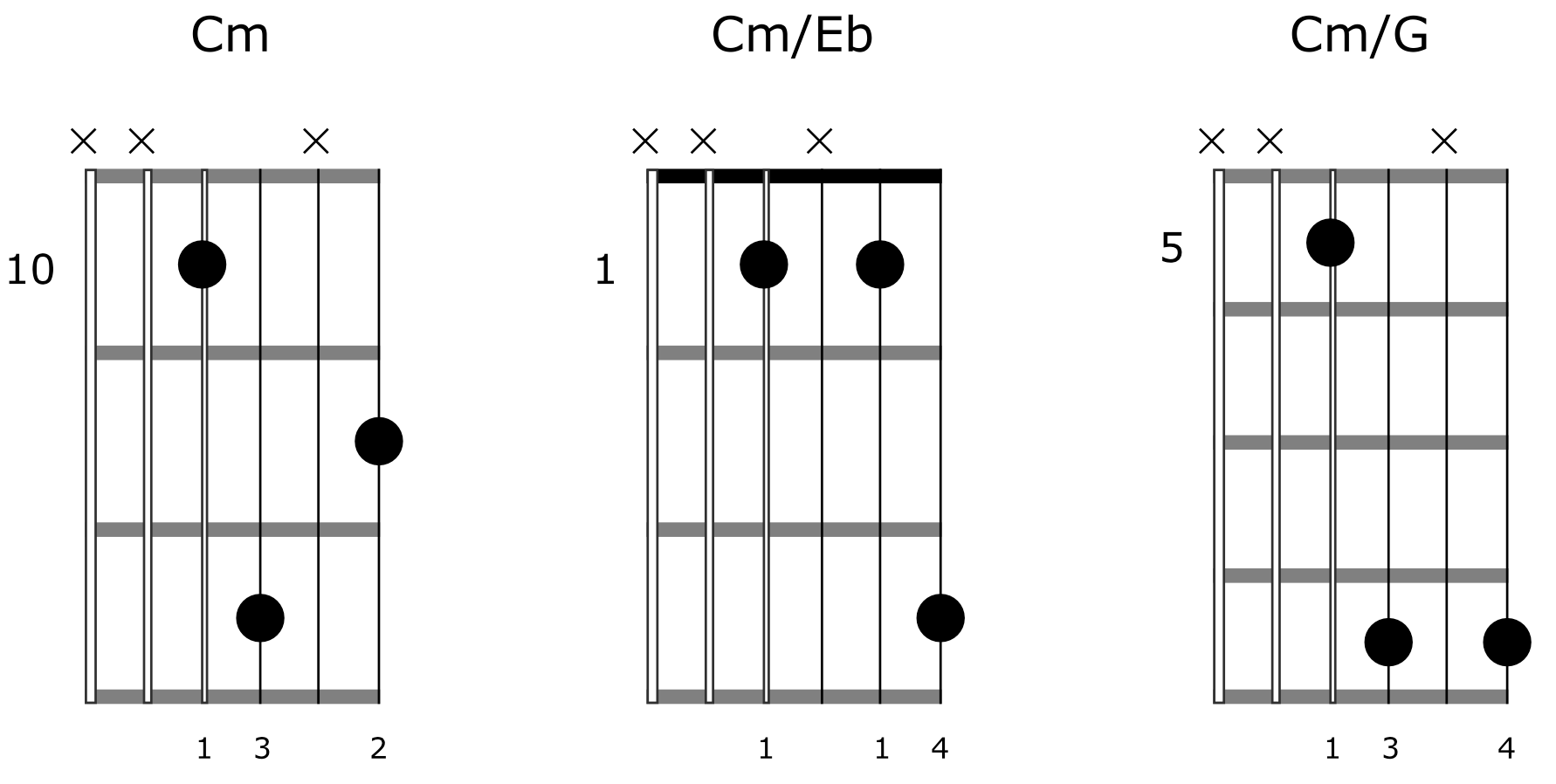
Spread Triad Progressions
The following are various ways you can use spread triads to voice a typical chord progression in C major.
• Example 1
The first arrangement uses the root position spread triad stemming from the 6th string (watch the video above for a detailed breakdown)
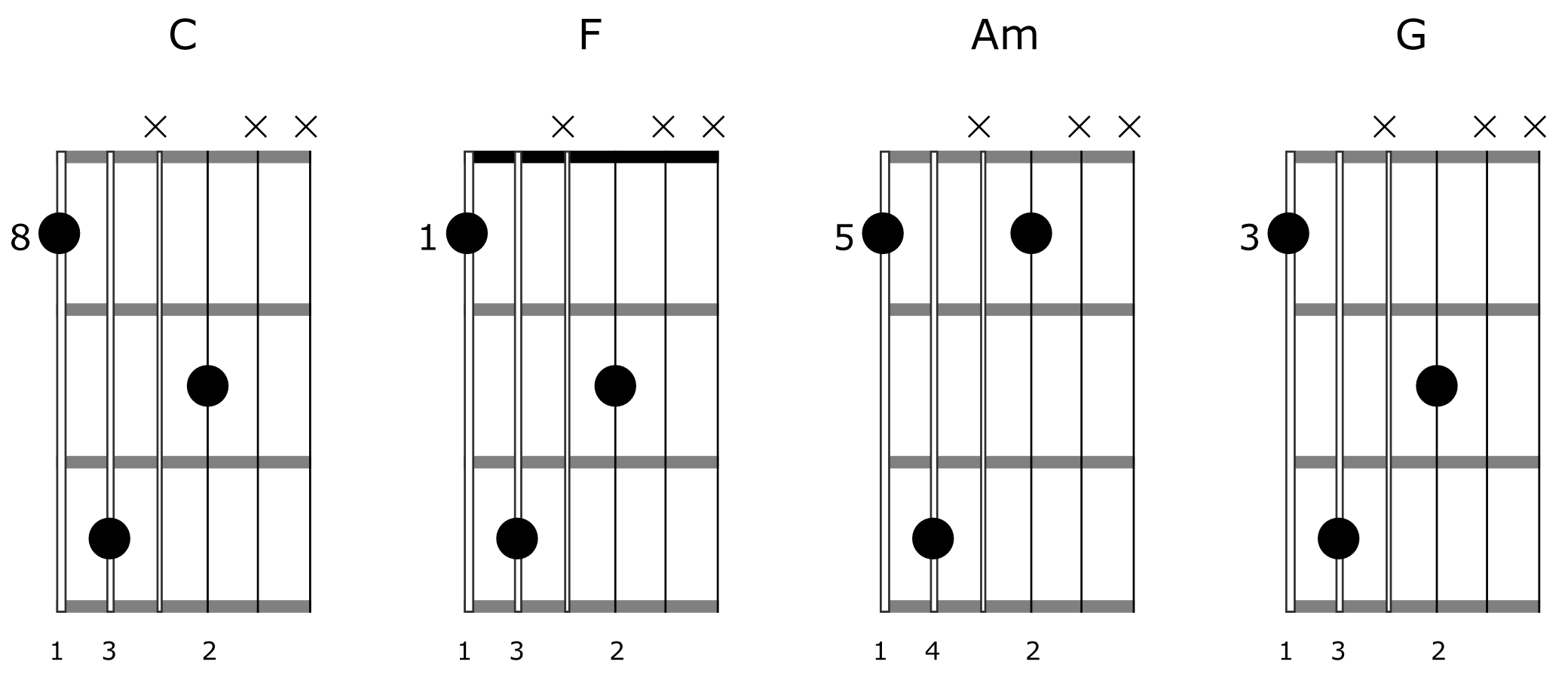
• Example 2
The second arrangement uses the root position spread triad stemming from the 5th string (watch the video above for a detailed breakdown)
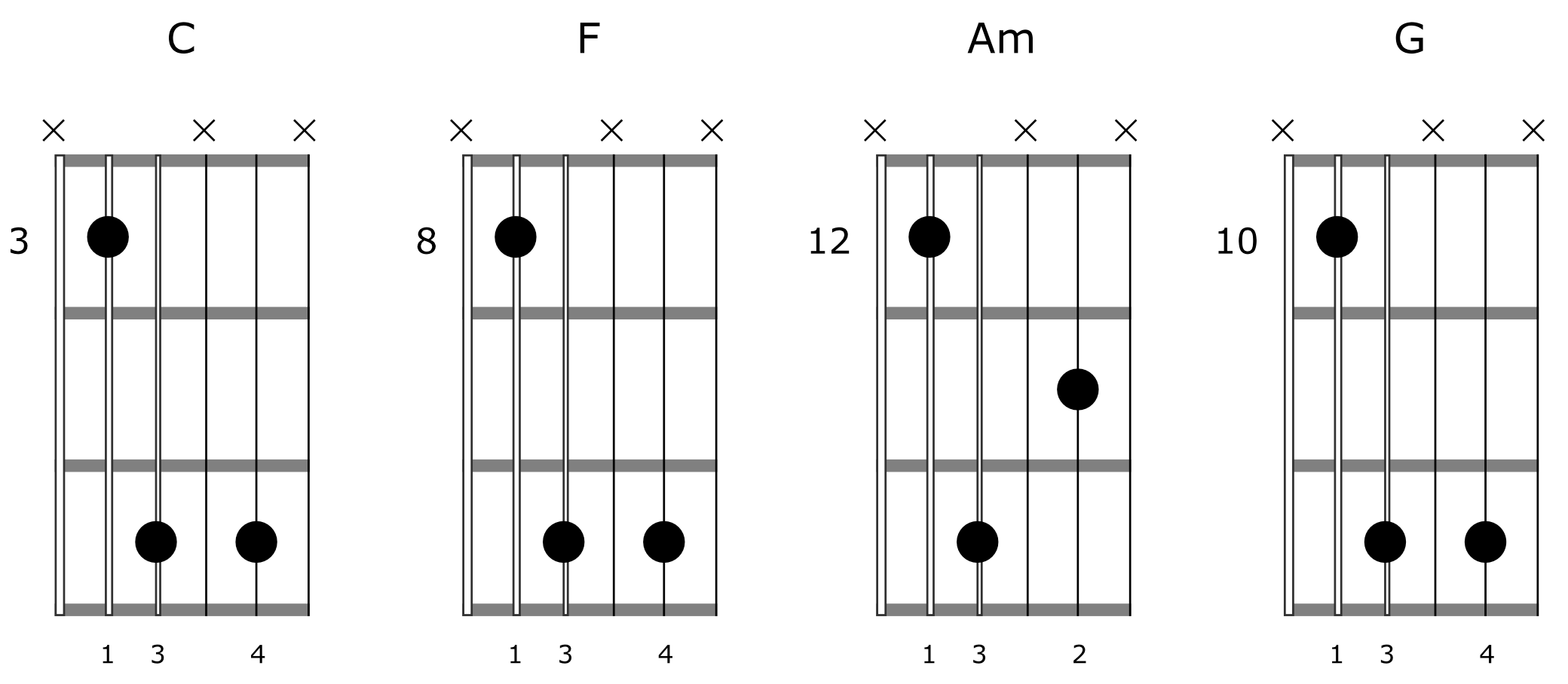
• Example 3
The third arrangement uses the root position spread triad stemming from the 4th string (watch the video above for a detailed breakdown)
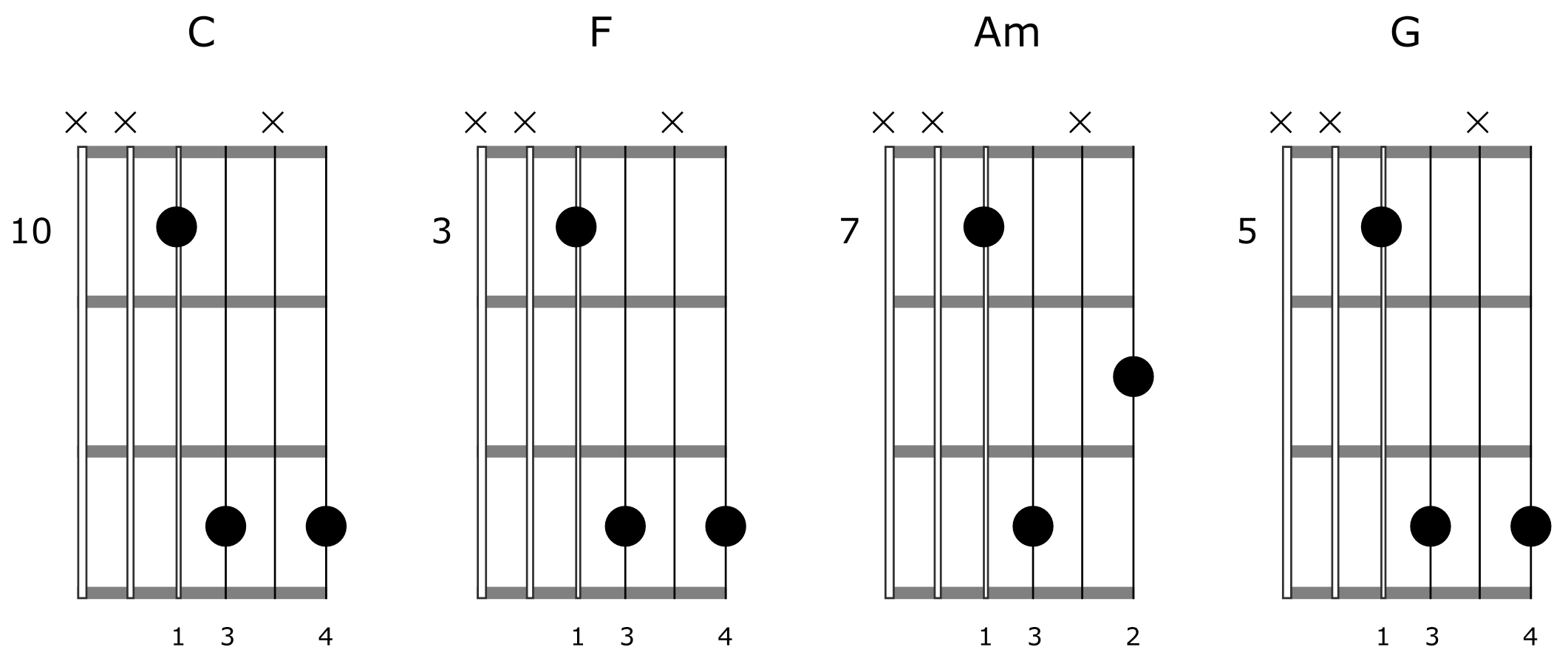
• Example 4
The fourth arrangement uses a variety of spread triads stemming from the 6th string to keep things more around the same area of the fretboard (watch the video above for a detailed breakdown)
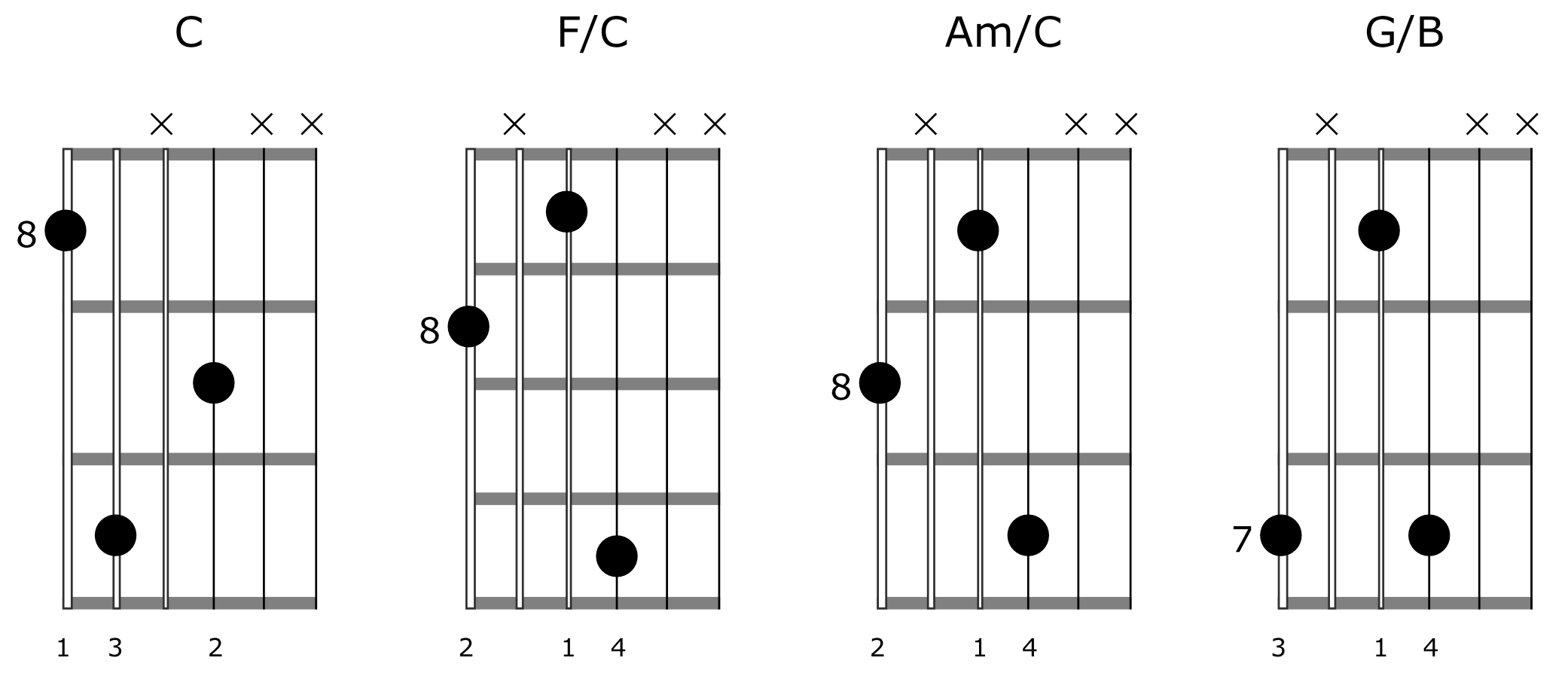
• Example 5
The fifth and final arrangement again uses a variety of spread triads, this time stemming from the 5th string to keep things more around the same area of the fretboard (watch the video above for a detailed breakdown)
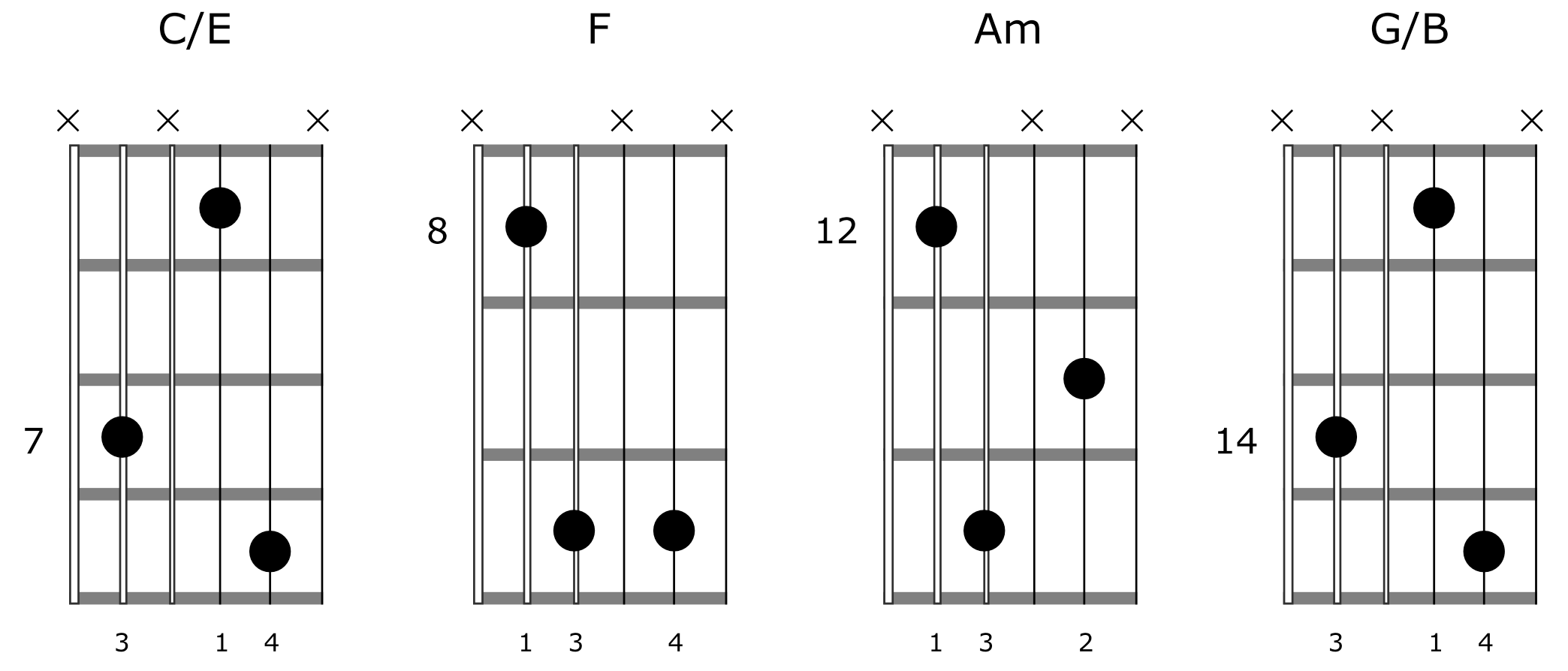
Discover how to accompany a singer on guitar with beautiful, melodic playing